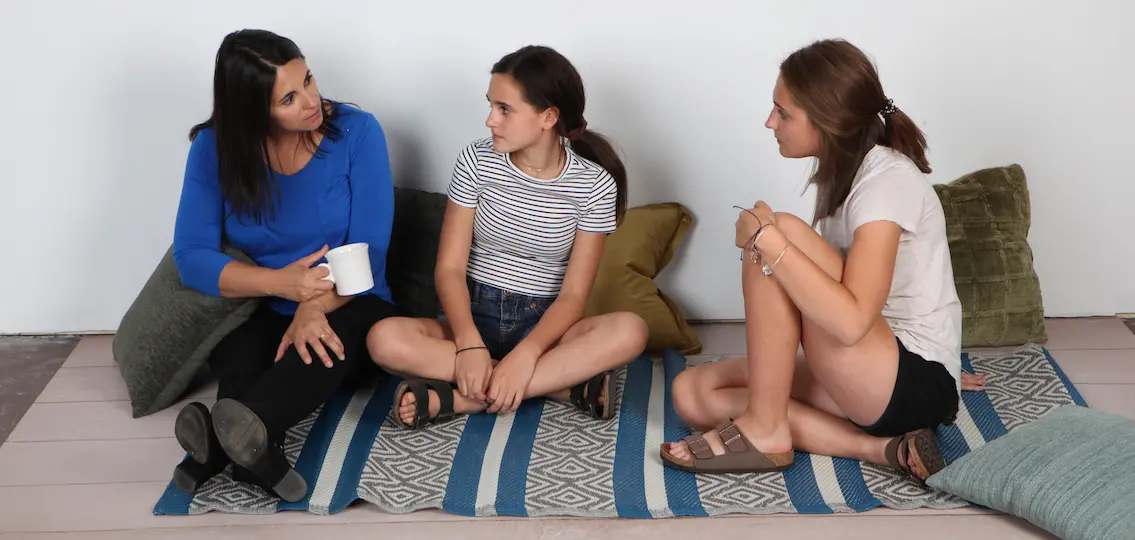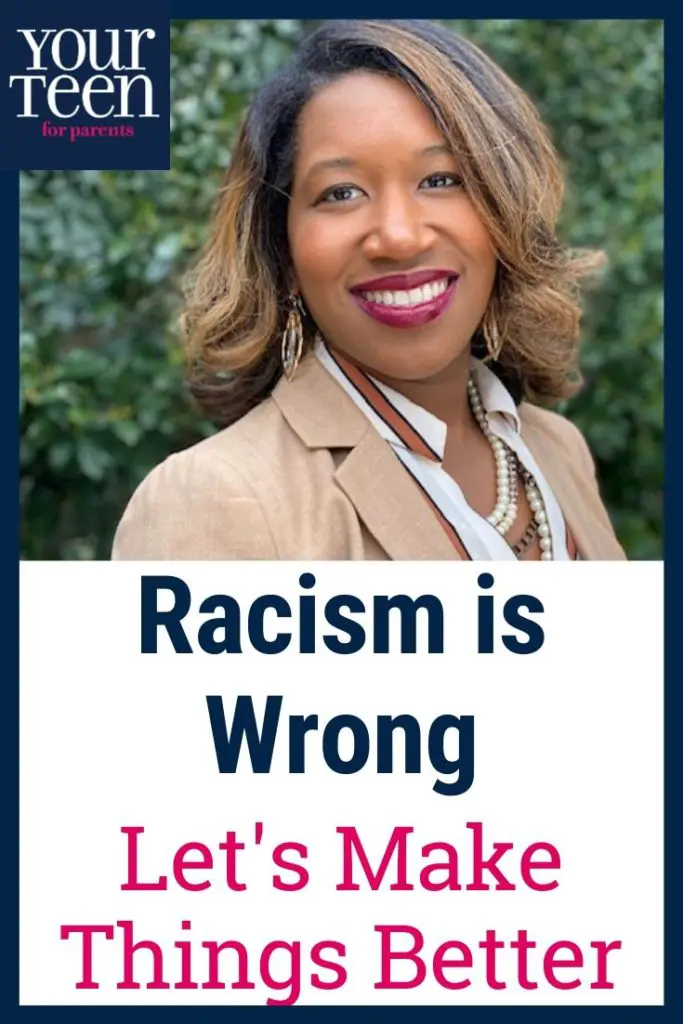Over the course of the last months, a lot of people have awakened wondering what in the world is happening. Teenagers, along with adults, are feeling anxious, angry, and confused. Many white people are feeling shame and guilt about what is happening and have a desire to repair the wrongs.
So what do we do? And more specifically, what should white parents be talking about with their teens right now?
Kristin Carothers, Ph.D. and LLC, outlines some very clear steps for how to discuss racism.
How Do We Discuss Racism with our Kids?
1. Acknowledge that racism exists.
Actor Will Smith said that “racism hasn’t increased, It’s just being filmed.” The very first step: Acknowledging that black people have experienced racism on multiple levels for years and years and that we’ve reached a point where it’s too much. We don’t have to agree with everyone’s perspective but we do need to acknowledge that there is a problem.
2. Allow teenagers to lead the discussion on racism
Ask questions:
- Tell me what you’ve been thinking about all of this.
- What’s it been like to see these things on social media?
- What have you heard?
- What makes sense?
- What are you confused about?
Then share your perspective.
3. Educate your teenagers
Start at home. For parents of white teenagers who are growing up in environments where most people look like them, there is a lot of teaching about systemic racism that has to be done. Teach your family about systemic racism and oppression. Let them see things from other perspectives. Provide historical information about how other groups got to this country. Supplement what they’re learning in school.
4. Rise up in your community
When you hear someone say something that is racist, speak up. Tell them that what they said isn’t kind and ask them not to say that around you. This is similar to how we address bullying; you have to say something or you have to ask for help.
For so long, black people have had to be the ones to speak up and bear the burden, especially when they have to code-switch in white spaces. It’s time for white people to speak out and shoulder some of the burden.

If you reach out to someone of color and they reject you, keep in mind that that’s what people of color experience every single day. They may not trust you or fear that you’re not genuine. They don’t want to get hurt. This is going to be uncomfortable for white people, but that doesn’t mean that you should stop trying.





